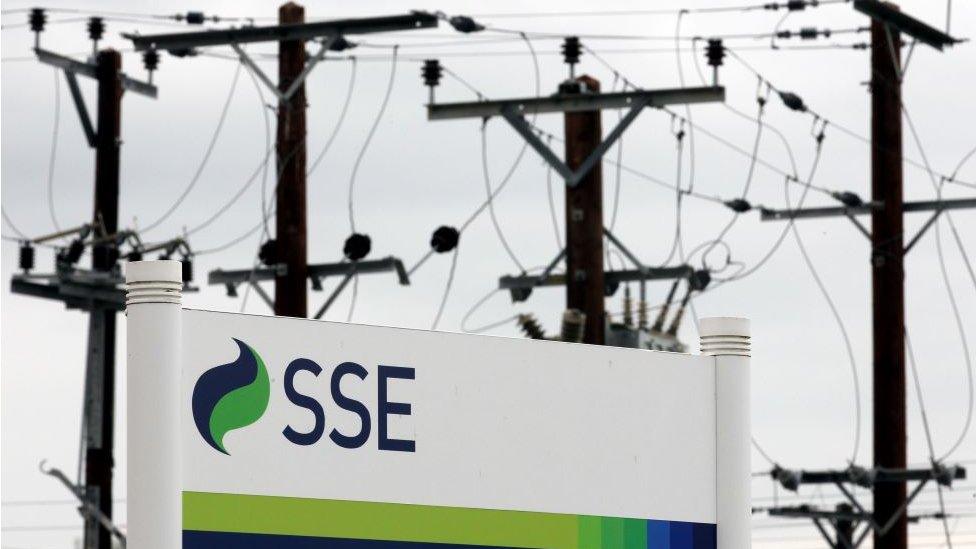Energy giant SSE to pay £9.8m penalty for pricing breach
- Published

Energy giant SSE is to pay £9.8m for breaching its generation licence, the industry regulator has announced.
Ofgem said the Perth-based company overcharged the National Grid Electricity System Operator during a time of "transmission constraint".
This is when operators are paid to drop output if there is not enough network capacity to take power out of an area where generation outstrips demand.
Ofgem said there was no evidence that SSE's actions were deliberate.
During transmission constraints, the electricity system operator takes action to manage flows across the network to increase and decrease the amount of electricity produced by different generators.
But there are risks that generators can exploit their position by increasing prices to reduce output and Ofgem puts rules in place to prevent this.
Ofgem launched a probe into SSE's actions at the Foyers pumped storage power station near Loch Ness in October 2021.
It found that SSE made the bid prices it charged the electricity system operator to lower output "significantly more expensive", including in periods of transmission constraint.
Costs for consumers
Ofgem said that, while there was no evidence to suggest the move was deliberate, it found that SSE breached the rules that were in place.
It warned that the pricing actions would ultimately increase costs for consumers.
SSE has since pledged to put in place a new pricing system designed to properly reflect the costs and benefits of reducing its generation at Foyers.
Ofgem said SSE's fine had been reduced from £11.58m as the company settled the investigation early.
SSE will be required to pay any penalty into the Energy Redress Fund.
The regulator added that it would consider any written representations or objections before reaching its final decision on whether to impose a penalty on SSE.


What is the Energy Redress Fund?
The fund was set up by Ofgem to distribute payments from rule-breaking energy companies to charities. It is managed by the Energy Saving Trust.
Charitable recipients are expected to deliver energy-related projects that support energy consumers in vulnerable situations.
The funds can pay for anything from making a home more energy efficient, to providing advice that helps struggling consumers keep on top of their bills.

A spokesman for SSE said: "We aim to comply with regulations at all times and believed we were doing so in this case.
"We co-operated fully with the investigation.
"Following the investigation, we are updating our relevant procedures accordingly."
Cathryn Scott, director of enforcement at Ofgem, said protecting consumers was a priority for the regulator.
She added: "This enforcement action sends another strong signal to all generators that they must put in place controls to ensure that their bid prices are set in a way that ensures that they do not obtain excessive benefits during transmission constraint periods.
"If they fail to do so, they will face significant consequences."